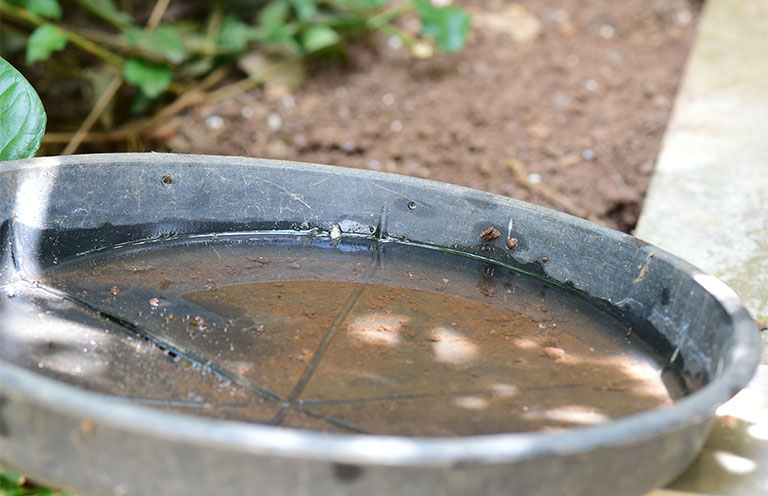Why Mosquitoes Love You—and How to Make Them Loathe You
From your blood type to your wardrobe, here are the reasons mosquitoes target certain people—and how to protect yourself from their bite


Ever feel like mosquitoes gravitate toward you while everyone else gets off bite-free?
You’re not imagining things—these pesky bugs are really picky. Studies show that an estimated 20 percent of people are especially irresistible to mosquitoes. Here’s what might make you a mosquito magnet—and what can you do about it.

What attracts mosquitoes?
Mosquitoes are tiny, winged bloodhounds with all sorts of natural sensors designed to sniff out their next human snack. Only female mosquitoes bite since they need the protein in your blood to produce their eggs.
So, why do mosquitoes seem to single you out at the barbecue? Here are some reasons you may be more appetizing than others.
Your blood type
Mosquitoes prefer Type O blood. People with this type are bitten nearly twice as often as those with Type A blood. (Though they won’t turn down Type A, they’re just less enthusiastic about it.)
Your body odor
Mosquitoes use their antennae to detect smells, and they’re particularly drawn to the chemicals found in sweat—such as lactic acid, ammonia, and uric acid. So if you sweat a lot, you may be ringing the mosquito dinner bell.

Carboxylic acids on your skin
These fatty acid compounds found on the skin are very attractive to mosquitoes. Recent research has found that people with higher levels of carboxylic acid are more likely to get bitten.
How much you breathe
Mosquitoes are connoisseurs of carbon dioxide. They can detect it from more than 150 feet away. The more CO2 you exhale—especially during exercise—the more susceptible you become to bites.
Your body heat
Mosquitoes can detect body temperature through heat-sensing receptors called thermoreceptors. They zero in on the warmest body parts, such as your head, neck, arms, and legs. If you run hot, you’re an easy mark.
Your clothing
Fashion choices matter when it comes to mosquito-proofing your body. Mosquitoes are attracted to dark colors such as black, navy, and forest green. Lighter colors, on the other hand, are less appealing, possibly because they’re harder to spot.

How to prevent mosquito bites (or at least reduce them)
Mosquitoes are more than just a nuisance; they’re also vectors, or living organisms that transmit diseases. Since they can carry serious diseases such as dengue, West Nile virus, and Zika, protecting yourself and reducing their breeding grounds is especially important.
In addition to using mosquito repellent and hiring mosquito control services to treat your home and yard, you also can adopt a few simple lifestyle practices.
Cover up
Wear long sleeves and pants when you go outside. While this won’t make you completely immune to mosquitoes, it does provide a solid barrier. This strategy works even better when you wear light or pastel colors.
Exercise indoors
The more you exert yourself, the more your body heat rises, and the more you sweat and breathe heavily. This creates a mosquito magnet trifecta: they’re drawn to heat, body odor, and the carbon dioxide you exhale.

Control mosquitoes outside
Mosquitoes lay their eggs in standing water, so be sure to empty buckets, pots, birdbaths, or any other place water may collect. Don’t forget to clean out your gutters, too. Clogged gutters can trap rainwater and become prime breeding grounds.
Use screens
Open windows and doors can bring fresh air into your home, but they also can invite mosquitoes inside. Install or repair window and door screens so that you can enjoy the breeze without the bugs.
Stay inside during peak biting times
Mosquitoes can bite at any time of day, but they’re most active at dawn and dusk. Avoid being outdoors during these hours, especially in areas where mosquitoes tend to gather.

What to know when it comes to mosquito repellent
Some ingredients are total turn-offs—for mosquitoes, that is. You’ll find these in both chemical and naturally derived repellents.
Conventional insect repellent can be very effective at keeping mosquitoes and other biting bugs at bay. Not all bug repellents are created equal, however. When choosing an insect repellent, look for one that’s registered with the Environmental Protection Agency (EPA) to ensure it’s been evaluated for safety and effectiveness. Also, be sure to consider the safety of the types of active ingredients—and the amounts of those ingredients—as well as safety specifically for certain groups, such as children and pregnant women.
If you’re looking for a more natural approach, oils such as citronella, lavender, and tea tree may offer short-term protection. Just keep in mind: While they can help, they typically don’t last as long as EPA-registered products and may need to be reapplied more frequently.
No matter which type of repellent you choose, follow the label instructions carefully, and reapply as directed—especially after sweating, swimming, or toweling off. That’s the best way to ensure your protection keeps working.
Dealing with mosquito bites can be an itchy pain, but with these tips, you’ll be better equipped to keep them at bay. For more expert advice, check out this mosquito prevention guide from the CDC.
